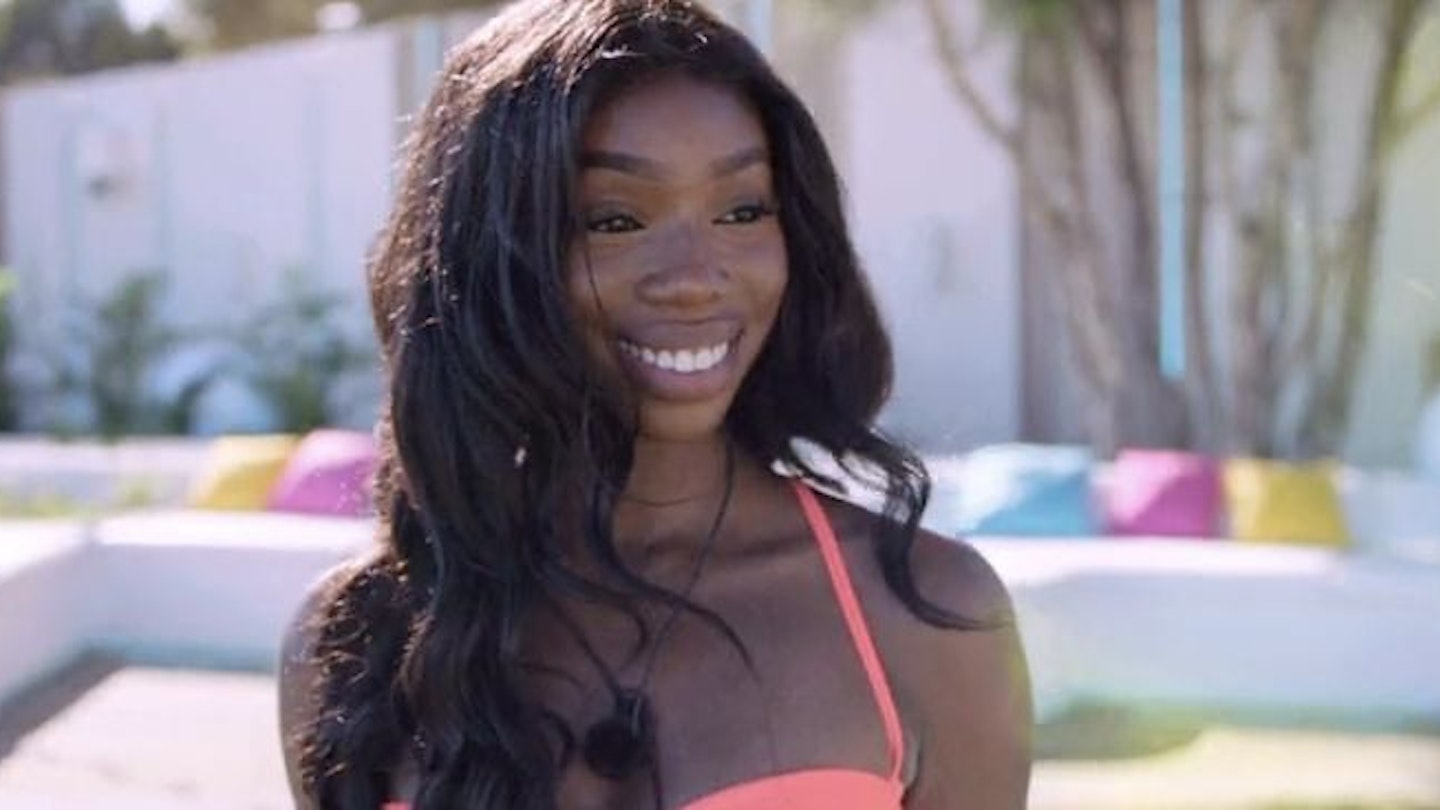Last week, I tuned in with over three million other viewers to watch twelve new contestants enter the Love Island villa. This year, series producers have been at pains to ensure their representation of a diverse cast of islanders meets the public’s desire to see themselves reflected on their screens. Unlike previous years, five people of colour are in the villa yet, scratch below the surface and not much has changed at all.
On the opening night we watched as four of the five people of colour in the villa – Yewande, Anna, Sherif and Michael – were not picked by each other or the other islanders to couple up. Sherif only coupled up with Anna after Amber chose to recouple with Callum after being visibly uncomfortable being coupled with Sherif. Yewande was not picked by any of the five male contestants and was partnered with Michael.
The situation did not go unnoticed by viewers, with former contestant Marcel Somerville, who went through something similar in 2017, tweeting in frustration: 'This is mad!!!! #LoveIsland flash backs! Black guy, black girl and mixed race guy all left unpicked. Mad!!!’
Later in the week, I sobbed watching Yewande desperately try to keep a poker face as Curtis – a white man, who had earlier seemed to want to partner with her – coupled up with blonde Amy. I realised in that moment that I cannot endure another series where a black woman waits patiently, obediently, to be chosen.
This isn’t the first time black and brown islanders have been left until last, the assumption being that no one finds them attractive enough based on first impression to want to couple up with them. And what this shows, all too clearly, is that diversity alone cannot solve persistent prejudice.
The inclusion of black and brown people in the series does nothing to address the sad reality that we are all consciously or unconsciously taught: that slim, heteronormative, cis-gender whiteness and proximity to it are seen as the most desirable qualities in a significant other.
It means that people who are non-white, or whose bodies or sexuality don’t fit the rigid, socially accepted mould slip down the dating hierarchy. And that problem goes far bigger than a seasonal series on ITV2.
In 2014, OK Cupid found that, out of all the dating app’s users, black women receive the fewest messages and the least attention.
Being a queer black woman, dating online is a markedly different experience for me than it might be for straight black women and other straight women of colour. The ways racism plays out in black women’s day to day lives means that while they might get fewer messages as the study suggests when they do receive messages some of them might be racialised like the ones writer Stephanie Yeboah has received in the past with white men sharing their racist fantasies of getting “a taste of jungle fever. “
And I see the reality of these findings playing out series after series in the Love Island villa. Last year, another woman of colour, Samira Mighty, was consistently rejected and eventually broke down in tears, unable to understand why none of the men she was attracted to in the villa were attracted to her. She ended up coupled frustratingly platonically with Dr Alex for much of the show.
Misogynoir, the blend of sexism and racism that targets black women, explains why like Samira, Yewande was left until last to be coupled up – but it doesn’t explain why neither woman stepped forward for the black and brown men who walked into the villa.
People do not have to be white to internalise white supremacist ideology. The same prejudice that stopped the men from coupling up with Yewande and Samira stopped the Love Island girls from stepping forward for the black and brown men on the show.
Does it sound jarring to read the words 'white supremacy' in the context of the Love Island villa? Perhaps. But, away from the extreme connotations, this ideology is also responsible for less outwardly violent acts of prejudice and othering.
Microaggressions like touching a black person’s hair or a security guard unnecessarily following a person of colour around a shop are both examples of this. And, in the wider world, the open bullying of MP Diane Abbott and Meghan Markle’s newborn baby being compared to a monkey by BBC presenter Danny Baker (now sacked) not only lie on the spectrum of white supremacy, but reinforce negative stereotypes of women of colour.
Negative messaging like this embeds pervasive beliefs of blackness in our shared consciousness that - among other antiquated tropes - black women are irrationally angry and black men are physically and sexually dangerous. In the Love Island villa these prejudices play out in the coupling 'games', where black and brown people are consistently overlooked in favour of lighter skinned peers.
Just as they are in the real world, they are then tasked with proving that they are more than the stereotypes attached to them, while their white counterparts are given the benefit of the doubt without so much as a conversation being had.
That is why simply demanding more diversity in Love Island is like putting a plaster over a bullet wound. And, while the series’ producers did not create these complex underlying rules and structures that govern who is worthy of desire, sadly, the show does confirm them – and strengthen their message, year after year.
And that’s why I won’t be watching the rest of the series. Because, until these micro- - and macro- - aggressions are reconciled, until we can truly change the way society dictates how we see people who are not white, Love Island will never be a truly safe space for people of colour - black women especially
